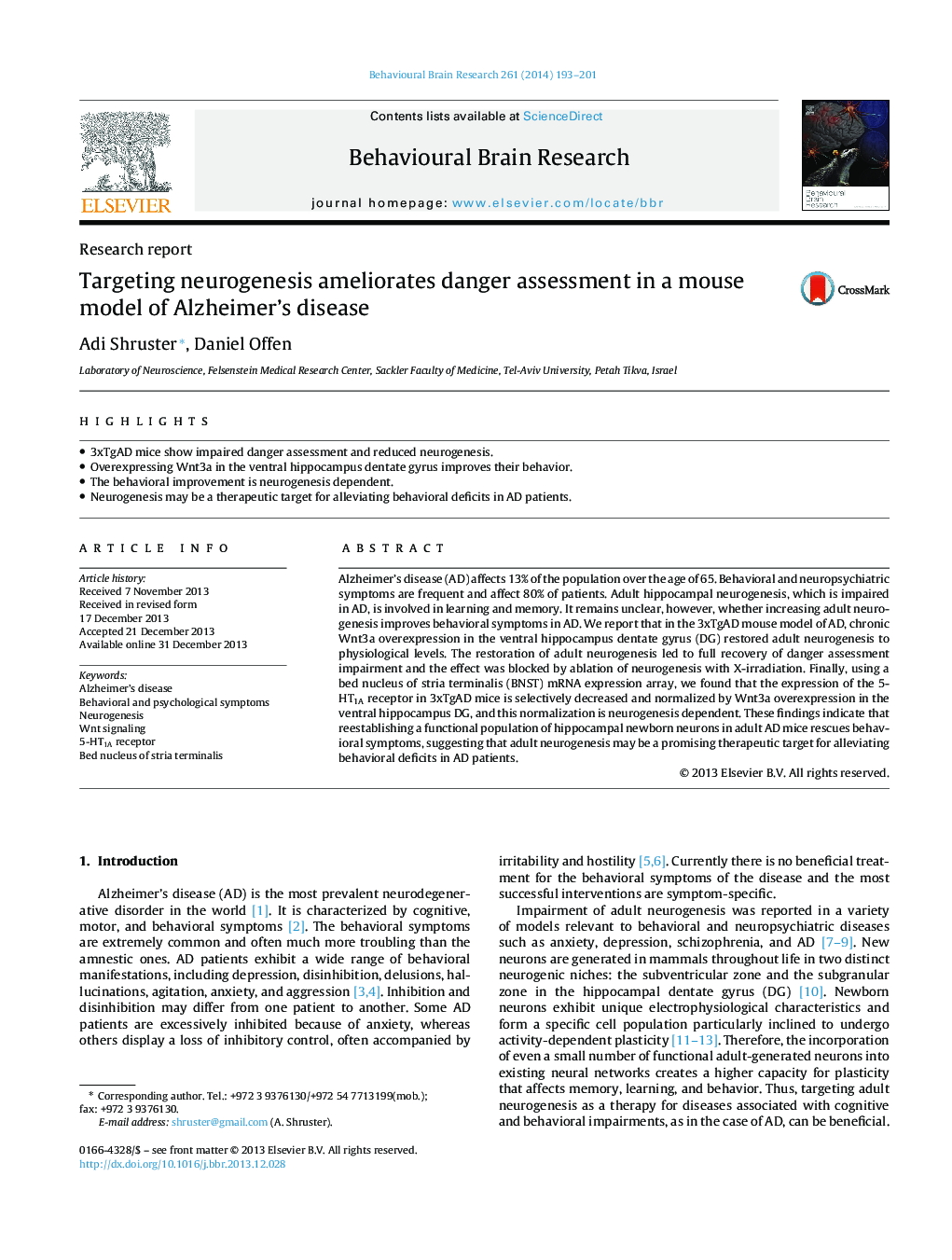| Article ID | Journal | Published Year | Pages | File Type |
|---|---|---|---|---|
| 6258361 | Behavioural Brain Research | 2014 | 9 Pages |
â¢3xTgAD mice show impaired danger assessment and reduced neurogenesis.â¢Overexpressing Wnt3a in the ventral hippocampus dentate gyrus improves their behavior.â¢The behavioral improvement is neurogenesis dependent.â¢Neurogenesis may be a therapeutic target for alleviating behavioral deficits in AD patients.
Alzheimer's disease (AD) affects 13% of the population over the age of 65. Behavioral and neuropsychiatric symptoms are frequent and affect 80% of patients. Adult hippocampal neurogenesis, which is impaired in AD, is involved in learning and memory. It remains unclear, however, whether increasing adult neurogenesis improves behavioral symptoms in AD. We report that in the 3xTgAD mouse model of AD, chronic Wnt3a overexpression in the ventral hippocampus dentate gyrus (DG) restored adult neurogenesis to physiological levels. The restoration of adult neurogenesis led to full recovery of danger assessment impairment and the effect was blocked by ablation of neurogenesis with X-irradiation. Finally, using a bed nucleus of stria terminalis (BNST) mRNA expression array, we found that the expression of the 5-HT1A receptor in 3xTgAD mice is selectively decreased and normalized by Wnt3a overexpression in the ventral hippocampus DG, and this normalization is neurogenesis dependent. These findings indicate that reestablishing a functional population of hippocampal newborn neurons in adult AD mice rescues behavioral symptoms, suggesting that adult neurogenesis may be a promising therapeutic target for alleviating behavioral deficits in AD patients.
